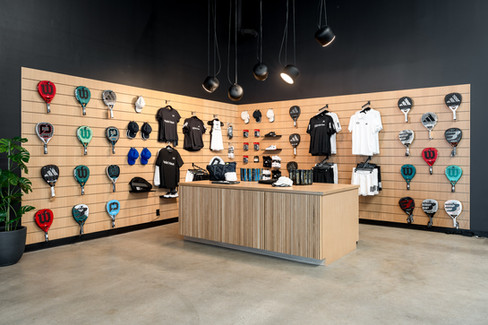The Essential Guide to Your Commercial Build-Out Journey
- keith943
- May 8, 2025
- 3 min read
Updated: May 19, 2025
Whether you’re expanding your business, moving into a new space, or recovering from unexpected damage, a commercial build-out is a significant investment of both time and capital. As a general contractor and construction management firm with decades of experience, we’ve seen how proper planning—or the lack of it—can impact everything from timelines to tenant satisfaction.
In this article, we share practical advice for business owners preparing for a build-out—from retail shops and restaurants to professional offices and healthcare clinics.
Understanding the Scope of Your Commercial Build-Out
“Commercial build-out” can mean different things depending on your space and goals. For some, it’s as simple as flooring and paint; for others, it includes plumbing, HVAC, framing, or ADA compliance. The scope typically falls into one of two categories:
Tenant Improvements (TI): Changes made to a leased space to fit a tenant’s needs. Often funded by the landlord with input from the tenant.
Full Build-Outs: More extensive interior construction, often in shell space, requiring permits, utility coordination, and a general contractor with deep commercial experience.
Before you request bids, clearly define what the end use will be and who is responsible for what (landlord vs. tenant) under the lease terms.
Know Your Jurisdiction’s Codes and Permitting Process
In places like Williamson, Davidson, and Rutherford Counties, code requirements vary depending on the municipality and occupancy type. A common delay in commercial projects stems from underestimating the time required for plan reviews, health department approval (for food and medical uses), and inspections.
Working with a licensed general contractor early can help you anticipate code requirements. This can streamline the submittal process—especially for spaces requiring fire suppression, kitchen ventilation, or ADA upgrades.
Consider Operational Disruption
If you’re remodeling an existing space while keeping your business open, planning construction phases that minimize impact on employees and customers is crucial. Dust, noise, and foot traffic should be managed collaboratively with your contractor.
Temporary partitions, after-hours work, and clear signage help minimize disruption. At Vision Building Group, we frequently create phased schedules for businesses that need to remain operational, especially in retail, medical, and food service sectors.
Plan for Contingencies (Including the Unexpected)
From recent experiences, supply chain delays and labor shortages can still have a considerable effect on commercial construction. Additionally, Middle Tennessee’s storm and flood risks highlight the importance of having a contingency plan.
Some businesses reach out to us after facing unexpected damage—such as floods, electrical fires, or structural issues—and require both disaster recovery and fast-track construction. If you’re in an older building or suspect unseen issues behind the walls, ensure your contractor can handle surprises without derailing your schedule.
Choose a Partner Who Understands Your Goals
Every commercial construction project is unique. Restaurants have different build-out needs than medical offices or banks. It’s vital to collaborate with a firm that takes the time to understand your business model, branding, customer flow, and compliance requirements—not just your floor plan.
At Vision Building Group, we work with business owners and developers across the Southeast. We deliver efficient, well-managed commercial spaces, handling everything from tenant improvements in Class A office buildings to multi-phase disaster recovery and rebuilds for hospitality clients.
Budgeting for Success
Budgeting for your commercial build-out is essential. Start with a clear and detailed budget that includes all project aspects, from construction materials to labor costs.
Having a budget allows you to make informed decisions about where to allocate resources. Also, consider potential hidden costs that may arise, ensuring you set aside a portion for unexpected expenses. A well-planned budget can mean the difference between a successful project and financial strain.
Navigating Project Timelines
Understanding and managing your project timeline is crucial. Delays can cost your business time and money, so it’s essential to establish realistic timelines from the start. Your general contractor should provide you with a timeline that includes key milestones and deliverables.
Regularly review this timeline to ensure you are on track. If delays arise, communicate with your contractor immediately to mitigate potential issues.
Final Thoughts
A commercial build-out can be complex, but it doesn’t have to feel chaotic. With early planning, clear communication, and the right construction partner, your project can seamlessly support both your business goals and your bottom line.
If you’re considering a commercial build-out or tenant improvement project in Tennessee or beyond, we’re here to answer your questions—even if you’re just in the initial planning stages.
Find out more about how we can help you with all aspects of your commercial build-out, ensuring your business is set up for success.
About Vision Building Group
Located in Rockvale, TN, Vision Building Group provides commercial general contracting and construction management services throughout Middle Tennessee and the Southeast. Learn more at vbgllc.com/commercial-home.






















Comments